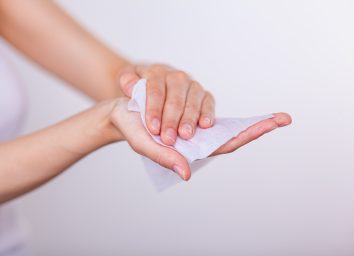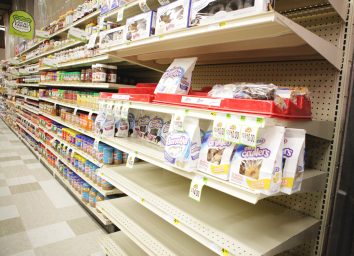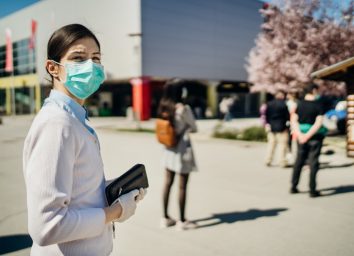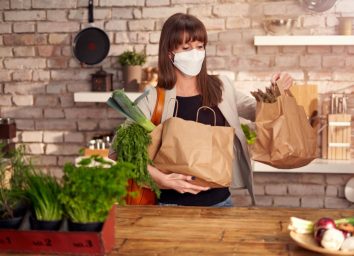7 Things You Must Stop Doing While Grocery Shopping Right Now
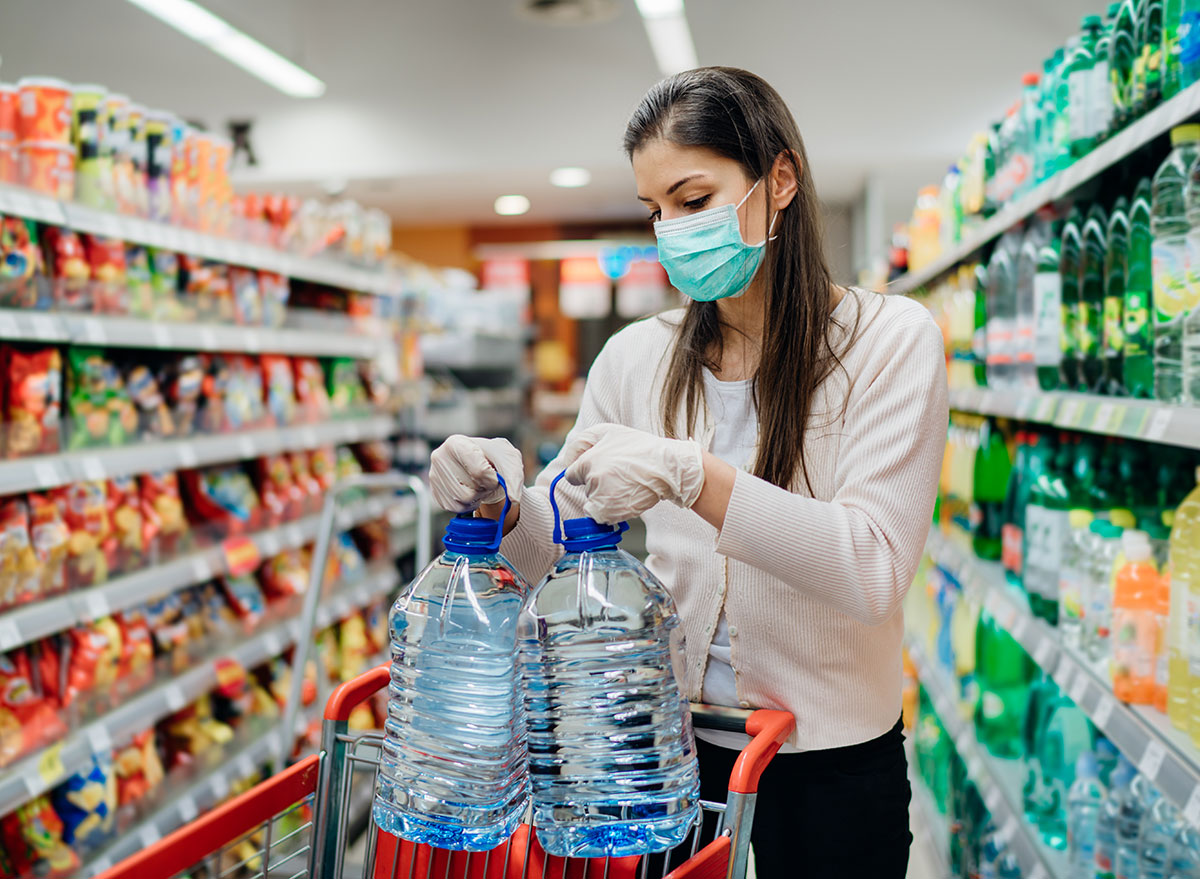
Restaurants and stores are opening back up and restrictions are being lifted, so you may be tempted to head to the grocery store more or fall back into ways of shopping that were okay before the pandemic.
With the risk of exposure to the coronavirus still out there, here are seven grocery store bad habits you need to stop doing in order to keep yourself and others safe.
Having your grocery list on your phone.
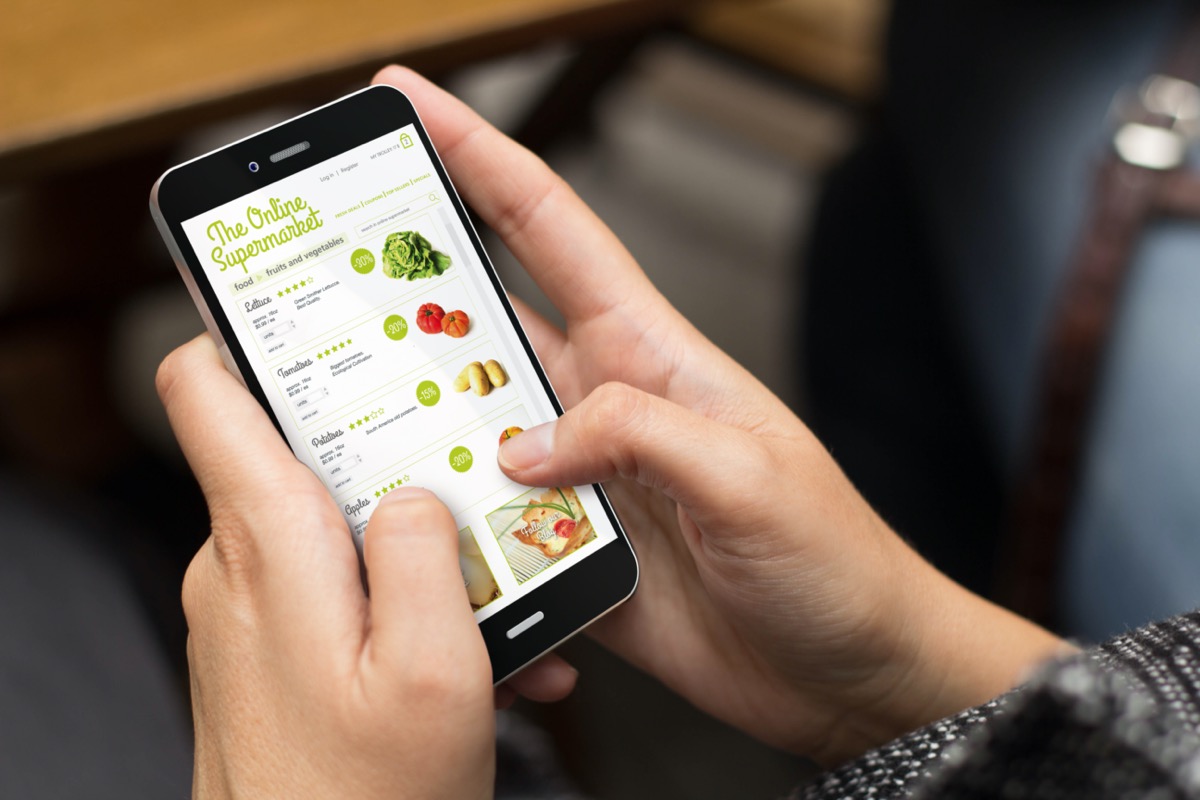
Cellphones are dirtier than most toilets, according to the University of Arizona. Yes, unfortunately, that means your phone, too. Combine those germs with those at the grocery store, and the risk of spreading bacteria and viruses is higher. One easy trick to avoid this is to simply write down your shopping list on a piece of paper. Ancient, but effective.
Plus, with a list ready to go, you can spend less time idling and more time finding what you need. Shorter trips equal less exposure time!
Shopping without a mask.
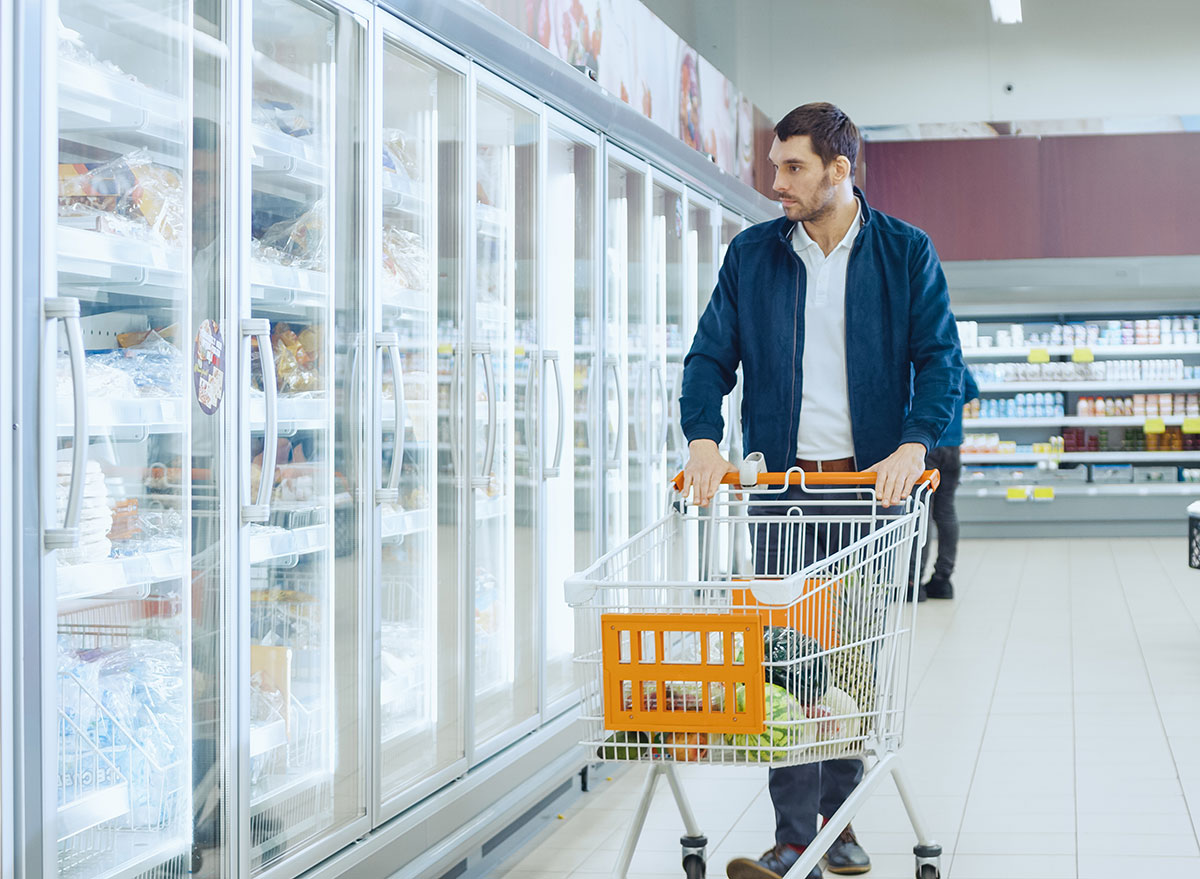
The CDC says that the best way to prevent the illness is to avoid being exposed to it. We've all heard it before: One way to do this is to cover your mouth and nose. If you are infected (even if you have no symptoms), this will help prevent the spread to others.
Touching items you're not going to buy.
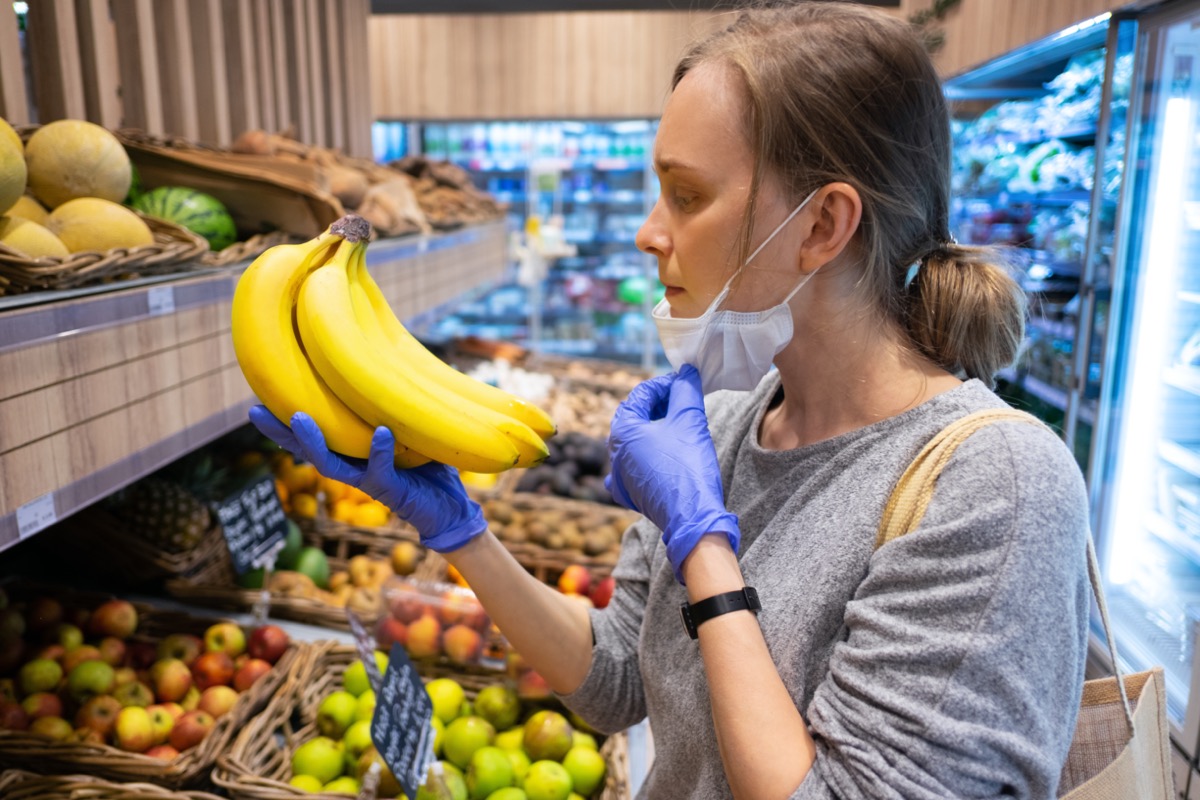
While you don't necessarily need to wear gloves to the grocery store during the pandemic (small tears and taking them off incorrectly make them ineffective), one grocery store bad habit you should avoid is touching items you aren't sure you're going to buy, according to the Cleveland Clinic. It's always a good idea to keep hand sanitizer on you and apply while you're shopping, especially if you've put something back on the shelf.
READ MORE: Click here for all of our latest coronavirus coverage.
Paying with cash.
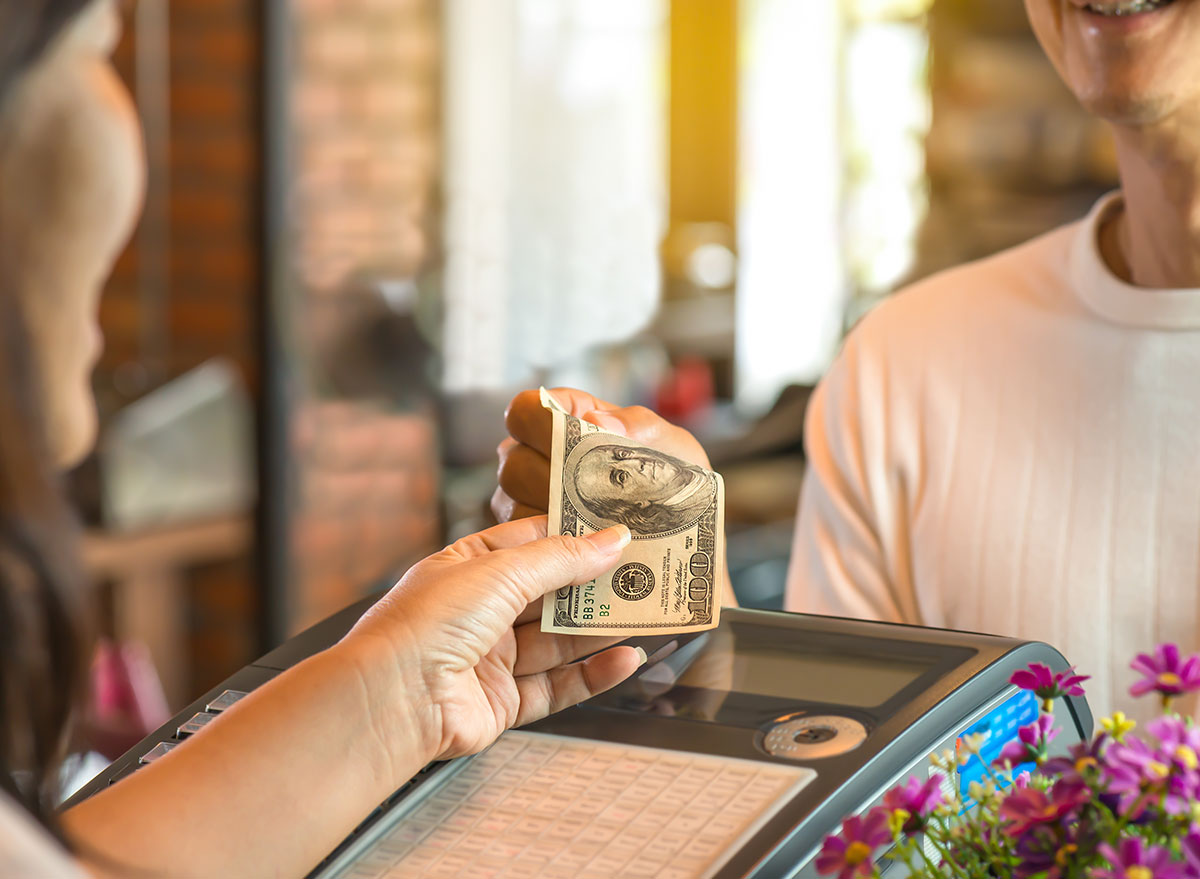
Back in March, the World Health Organization told The Telegraph that cash can carry bacteria or viruses. While they didn't specifically say money could play host to the coronavirus, they did emphasize the need to wash your hands after and to use contactless payments like credit cards or Apple Pay. Be sure to wipe off your card after, since the virus can live on plastic for three days, according to the Cleveland Clinic.
Not washing your reusable bags.
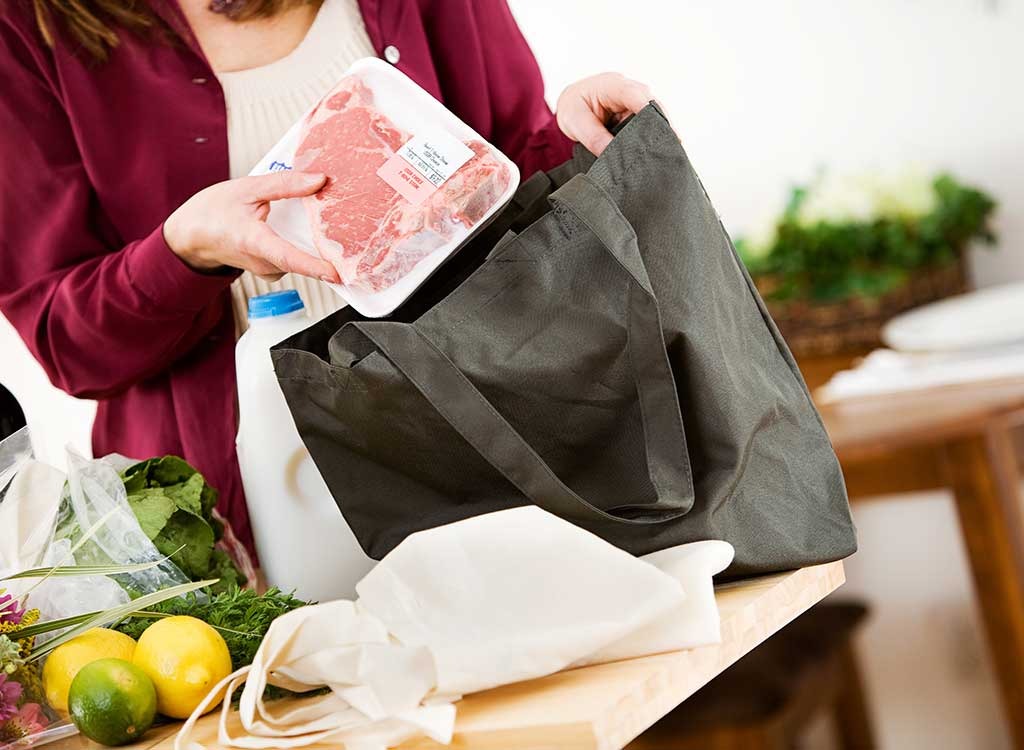
Before the pandemic, some states banned the use of plastic bags in grocery stores, instead encouraging customers to bring their own reusable bags to put groceries in. This environmentally friendly swap is a risky one, according to a study published in Food Protection Trends. If you don't regularly clean your reusable bags, there could be a significant amount of bacteria and E. coli. Wiping them down or throwing them in the wash helped reduce the bacteria number by 99.9%.
Using the salad bar.
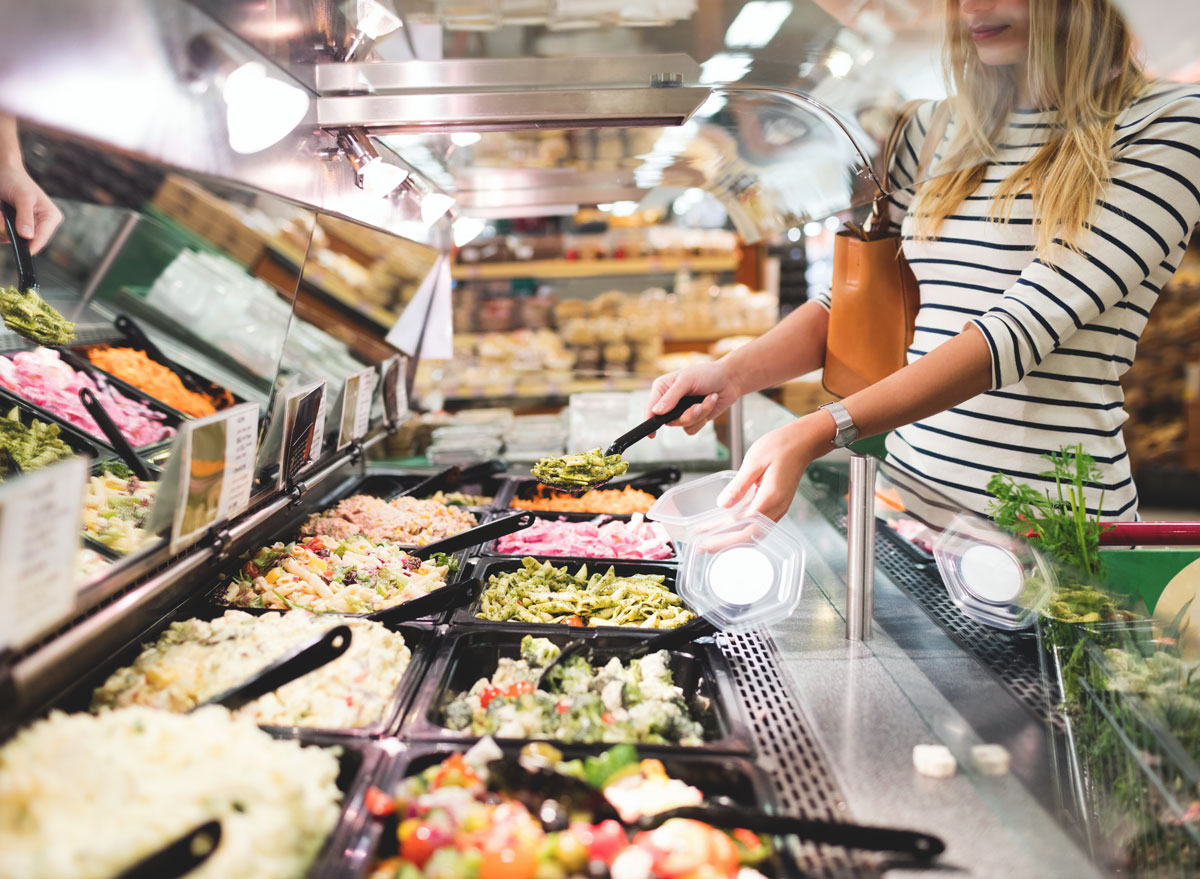
The FDA says there is no evidence that food can transport the COVID-19 virus. However, by touching a surface, like a plastic serving spoon at the grocery buffet/salad bar, there is a chance the virus can spread to your hands. So, it's also important to — you guessed it! — wash your hands after using serving public utensils, and after going to the grocery store in general.
Not wiping down the cart/basket.
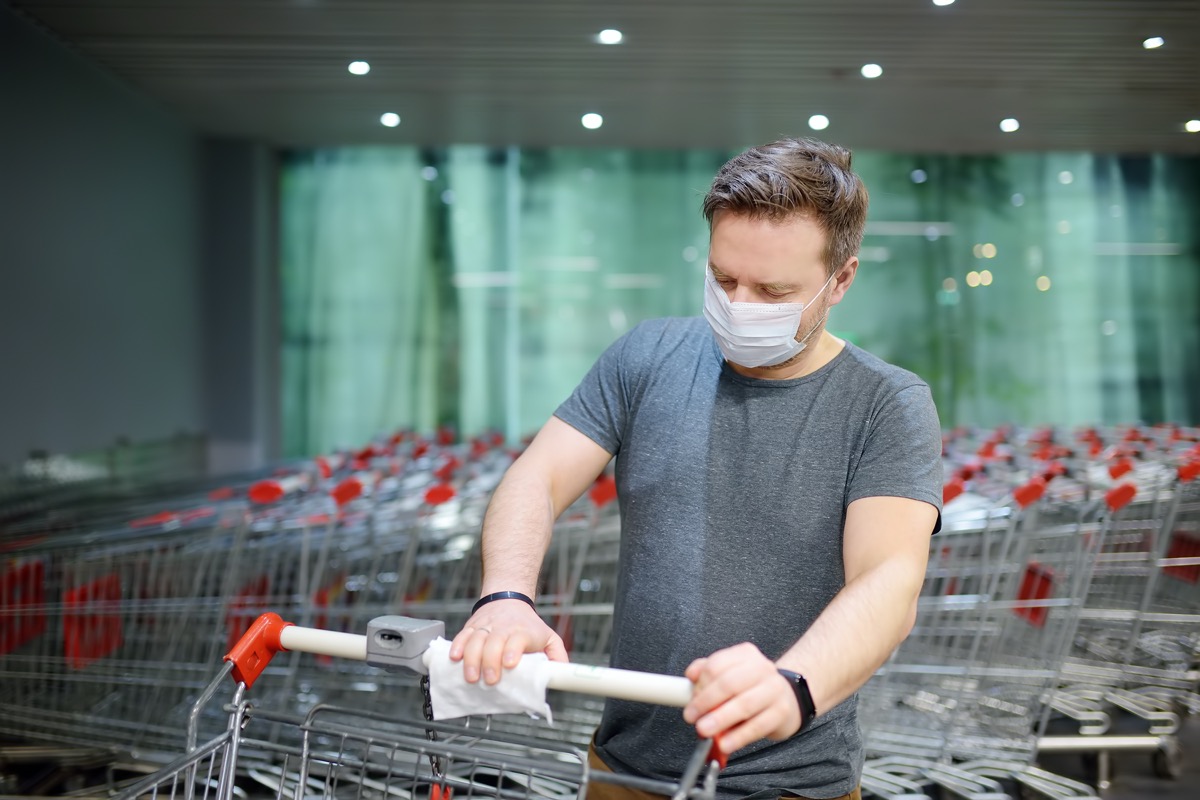
Without cleaning off a cart or basket at a traditional grocery store before use, it can harbor over 360 times more germs than a bathroom doorknob, according to a study completed by Reusethisbag.com. Of the bacteria found on carts, over 80% is reported to be harmful and antibiotic-immune. This grocery store bad habit is an easy one to fix, since stores have disinfectant wipes out for customers to use.
